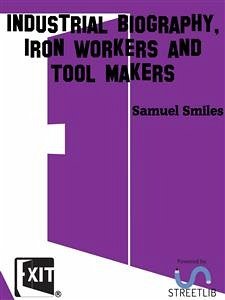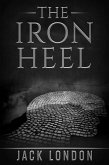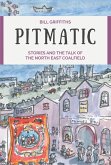PREFACE.
The Author offers the following book as a continuation, in a more generally accessible form, of the Series of Memoirs of Industrial Men introduced in his Lives of the Engineers. While preparing that work he frequently came across the tracks of celebrated inventors, mechanics, and iron-workers—the founders, in a great measure, of the modern industry of Britain—whose labours seemed to him well worthy of being traced out and placed on record, and the more so as their lives presented many points of curious and original interest. Having been encouraged to prosecute the subject by offers of assistance from some of the most eminent living mechanical engineers, he is now enabled to present the following further series of memoirs to the public.
Without exaggerating the importance of this class of biography, it may at least be averred that it has not yet received its due share of attention. While commemorating the labours and honouring the names of those who have striven to elevate man above the material and mechanical, the labours of the important industrial class to whom society owes so much of its comfort and well-being are also entitled to consideration. Without derogating from the biographic claims of those who minister to intellect and taste, those who minister to utility need not be overlooked. When a Frenchman was praising to Sir John Sinclair the artist who invented ruffles, the Baronet shrewdly remarked that some merit was also due to the man who added the shirt.
A distinguished living mechanic thus expresses himself to the Author on this point:—"Kings, warriors, and statesmen have heretofore monopolized not only the pages of history, but almost those of biography. Surely some niche ought to be found for the Mechanic, without whose skill and labour society, as it is, could not exist. I do not begrudge destructive heroes their fame, but the constructive ones ought not to be forgotten; and there IS a heroism of skill and toil belonging to the latter class, worthy of as grateful record,—less perilous and romantic, it may be, than that of the other, but not less full of the results of human energy, bravery, and character. The lot of labour is indeed often a dull one; and it is doing a public service to endeavour to lighten it up by records of the struggles and triumphs of our more illustrious workers, and the results of their labours in the cause of human advancement."
The Author offers the following book as a continuation, in a more generally accessible form, of the Series of Memoirs of Industrial Men introduced in his Lives of the Engineers. While preparing that work he frequently came across the tracks of celebrated inventors, mechanics, and iron-workers—the founders, in a great measure, of the modern industry of Britain—whose labours seemed to him well worthy of being traced out and placed on record, and the more so as their lives presented many points of curious and original interest. Having been encouraged to prosecute the subject by offers of assistance from some of the most eminent living mechanical engineers, he is now enabled to present the following further series of memoirs to the public.
Without exaggerating the importance of this class of biography, it may at least be averred that it has not yet received its due share of attention. While commemorating the labours and honouring the names of those who have striven to elevate man above the material and mechanical, the labours of the important industrial class to whom society owes so much of its comfort and well-being are also entitled to consideration. Without derogating from the biographic claims of those who minister to intellect and taste, those who minister to utility need not be overlooked. When a Frenchman was praising to Sir John Sinclair the artist who invented ruffles, the Baronet shrewdly remarked that some merit was also due to the man who added the shirt.
A distinguished living mechanic thus expresses himself to the Author on this point:—"Kings, warriors, and statesmen have heretofore monopolized not only the pages of history, but almost those of biography. Surely some niche ought to be found for the Mechanic, without whose skill and labour society, as it is, could not exist. I do not begrudge destructive heroes their fame, but the constructive ones ought not to be forgotten; and there IS a heroism of skill and toil belonging to the latter class, worthy of as grateful record,—less perilous and romantic, it may be, than that of the other, but not less full of the results of human energy, bravery, and character. The lot of labour is indeed often a dull one; and it is doing a public service to endeavour to lighten it up by records of the struggles and triumphs of our more illustrious workers, and the results of their labours in the cause of human advancement."









